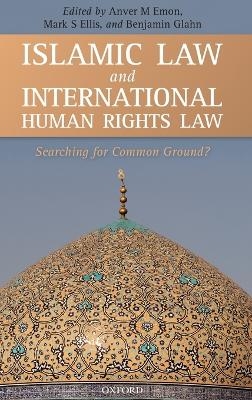
Islamic Law and International Human Rights Law
Oxford University Press (Verlag)
978-0-19-964144-4 (ISBN)
The relationship between Islamic law and international human rights law has been the subject of considerable, and heated, debate in recent years. The usual starting point has been to test one system by the standards of the other, asking is Islamic law 'compatible' with international human rights standards, or vice versa. This approach quickly ends in acrimony and accusations of misunderstanding. By overlaying one set of norms on another we overlook the deeply contextual nature of how legal rules operate in a society, and meaningful comparison and discussion is impossible.
In this volume, leading experts in Islamic law and international human rights law attempt to deepen the understanding of human rights and Islam, paving the way for a more meaningful debate. Focusing on central areas of controversy, such as freedom of speech and religion, gender equality, and minority rights, the authors examine the contextual nature of how Islamic law and international human rights law are legitimately formed, interpreted, and applied within a community. They examine how these fundamental interests are recognized and protected within the law, and what restrictions are placed on the freedoms associated with them.
By examining how each system recognizes and limits fundamental freedoms, this volume clears the ground for exploring the relationship between Islamic law and international human rights law on a sounder footing. In doing so it offers a challenging and distinctive contribution to the literature on the subject, and will be an invaluable reference for students, academics, and policy-makers engaged in the legal and religious debates surrounding Islam and the West.
Anver M. Emon is associate professor of law at the Faculty of Law, University of Toronto. His research focuses on premodern and modern Islamic legal history and theory; premodern modes of governance and adjudication; and the role of Shari'a both inside and outside the Muslim world. The author of Islamic Natural Law Theories (Oxford University Press, 2010), Professor Emon is the editor in chief of Middle East Law and Governance: An Interdisciplinary Journal. As Executive Director of the International Bar Association (IBA) Mark Ellis leads the foremost international organization of bar associations, law firms and individual lawyers in the world. Prior to joining the IBA, he spent ten years as the first Executive Director of the Central European and Eurasian Law Initiative (CEELI), a project of the American Bar Association (ABA). Providing technical legal assistance to twenty-eight countries in Central Europe and the former Soviet Union, and to the International Criminal Tribunal for the Former Yugoslavia (ICTY) in The Hague, CEELI remains the most extensive international pro bono legal assistance project ever undertaken by the US legal community. He served as Legal Advisor to the Independent International Commission on Kosovo, chaired by Justice Richard J. Goldstone and was appointed by OSCE to advise on the creation of Serbia's War Crimes Tribunal and was actively involved with the Iraqi High Tribunal. Benjamin Glahn is the Former Deputy Chief Program Officer and Program Director at the Salzburg Global Seminar.
PART I: ISLAMIC LAW AND INTERNATIONAL HUMAN RIGHTS LAW; PART II: FREEDOM OF SPEECH; PART III: FREEDOM OF RELIGION; PART IV: WOMEN'S EQUALITY; PART V: MINORITY RIGHTS
| Erscheint lt. Verlag | 11.10.2012 |
|---|---|
| Verlagsort | Oxford |
| Sprache | englisch |
| Maße | 163 x 240 mm |
| Gewicht | 780 g |
| Themenwelt | Geisteswissenschaften ► Religion / Theologie ► Islam |
| Recht / Steuern ► Allgemeines / Lexika | |
| Recht / Steuern ► EU / Internationales Recht | |
| Recht / Steuern ► Öffentliches Recht ► Völkerrecht | |
| Sozialwissenschaften ► Politik / Verwaltung | |
| ISBN-10 | 0-19-964144-7 / 0199641447 |
| ISBN-13 | 978-0-19-964144-4 / 9780199641444 |
| Zustand | Neuware |
| Haben Sie eine Frage zum Produkt? |
aus dem Bereich


